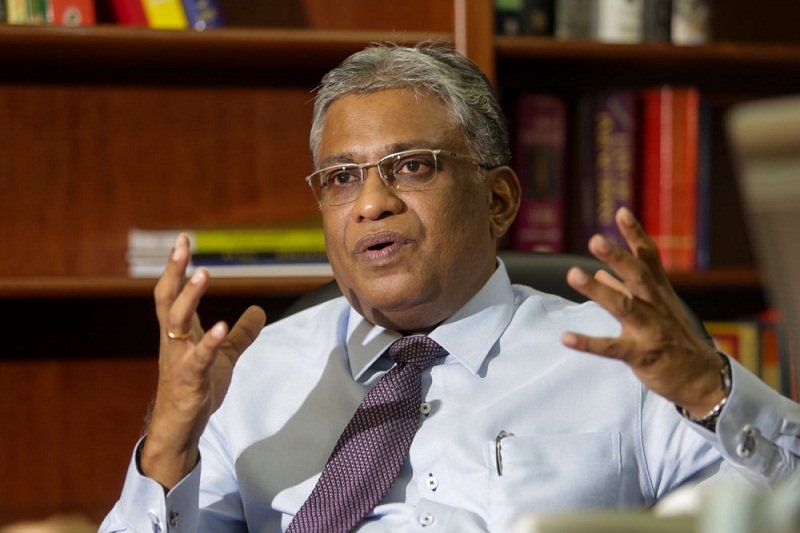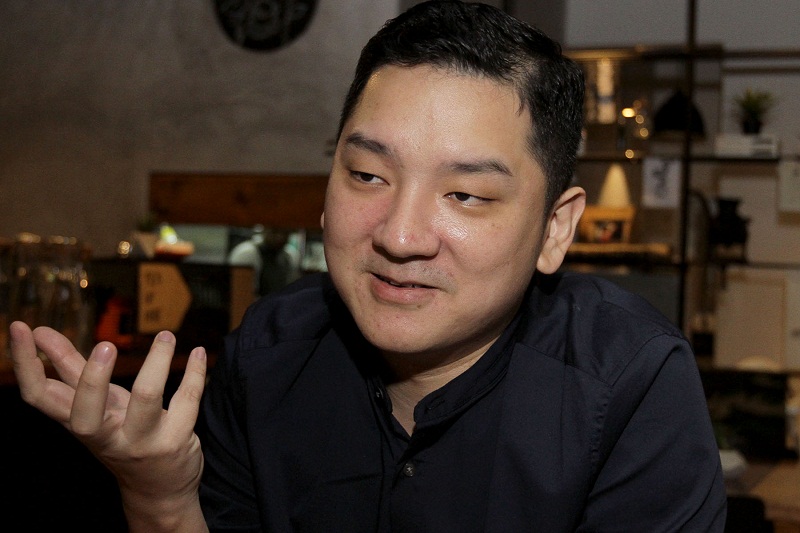KUALA LUMPUR, Nov 6 ― Several lawyers have expressed their frustration with the Bar Council’s seeming reluctance to embrace innovations that could benefit small legal firms.
Corporate lawyer Marcus van Geyzel said that although the Bar Council was quick to act in all matters political, it moves slowly when formulating or adopting policies and changes that he believes could improve the profession.
For one, van Geyzel said lawyers were very unhappy with the Bar Council’s ban on virtual offices in March last year.
He also questioned why the Legal Profession Act 1976 has yet to be amended to allow lawyers to set up limited liability partnerships, even though the Limited Liability Partnerships (LLP) Act came into force three years ago in 2012.
Van Geyzel also pointed out that the Bar Council has yet to pass the rules it proposed in 2013 to allow lawyers to set up group practices. Group practices, which are currently prohibited, essentially allows small firms to combine resources and share an office and administrative staff like a receptionist.
Small firms with fewer than five lawyers are estimated to comprise 90 per cent of law firms in Malaysia, according to the Bar Council. There are some 17,000 lawyers in the peninsula.
“The Bar Council is irrelevant to a lot of people,” van Geyzel told Malay Mail Online in a recent interview.
“What difference does it make to my daily practice life? When it comes to things like LLP which would be a great innovation for lawyers to have, they’re taking ages to do it.
“In Singapore, when the LLP Act was passed, within one and a half years, the Legal Profession Act there was amended to allow lawyers to use it,” added the Peter Ling & van Geyzel partner.
Van Geyzel noted that the Bar Council often wonders why so few lawyers vote during council elections or turn up for meetings.
Responding to this, the lawyer pointed out that when it comes to political issues in Malaysia, the Bar Council usually issues press statements within 24 hours, but matters like the LLP, on the other hand, is taking years to implement.
The Bar Council 2016/2017 election has already started, with 30 candidates vying for 12 seats. Lawyers have until the end of the month to cast their votes. According to the Malaysian Bar, results of the election will likely be announced on December 1.
According to van Geyzel, LLPs give more options on how to manage tax, and lawyers can distance themselves in terms of liability as the LLP is a separate legal entity, as opposed to a traditional partnership where individual partners are personally liable.
Van Geyzel, whose firm has six lawyers, said the Bar Council should also allow lawyers to set up group practices and permit such group firms to use a single brand name. The Bar Council’s proposed Legal Profession (Group Practice) Rules 2013 do not allow group practices to adopt a joint group practice name, unlike in Singapore.
Under the draft Bar Council rules, the group practice model is limited to firms with not more than five advocates and solicitors each, and which do not have branch offices.
Van Geyzel said he finds these restrictions unnecessary.
“With a GLP (group law practice), you get to pool resources. For example, a group of firms that has two to three lawyers each can rent an entire floor of office space and share the huge conference room and library, and a nice reception, instead of having little units. It’ll look like a big law firm,” said van Geyzel.
Lawyers can also benefit from referrals if they join group practices that comprise lawyers from other specialties, he said.
“That’s why big law firms are afraid ― because they’re full service,” said van Geyzel. “Pooling resources, saving on overhead, and strong branding are the main benefits”.
He said LLPs, group practices and virtual offices are beneficial to lawyers because it gives them options.
“The Bar Council is not doing enough to help lawyers to keep up with innovation and to compete in a highly fast-moving world,” said van Geyzel.
Confidentiality no issue with virtual offices
Foong Cheng Leong, who runs a law firm on his own as a sole proprietor, said he used to have a virtual office, where the service provider would provide a receptionist at an office space to take phone calls that would be conveyed to him through SMS, to receive and forward mail to him, and also provide a meeting room for use. Such services and the office premises can be used by other businesses at the same time too.
The virtual office located here only cost him RM1,200 a year, compared to renting an office in Publika, near the Kuala Lumpur courthouse, that currently costs RM4 per sq ft that could amount to RM3,200 a month for a 753 sq ft unit.
“Confidentiality is a valid reason, but I don’t see any problem with it. In the virtual office, the receptionist doesn’t open letters,” Foong told Malay Mail Online in an interview.
The intellectual property and information technology lawyer said big firms do not like virtual offices as small firms using such offices would be able to charge much lower legal fees, compared to large practices that need to cover huge overhead costs like rental and staff salaries.
According to the Bar Council, mid-sized firms in Malaysia have about 30 to 40 lawyers, while big firms have close to 100.
Foong, who works from home and stores clients’ documents there, said his house is more secure than offices, pointing out too that most files are now electronic and transactions are done online.
“IT security is more important than physical security,” he said, adding that he generally meets clients at their office.
The Bar Council issued a circular in March 2014 banning lawyers from using virtual offices. A group of lawyers then met with the Bar Council’s legal practice committee to discuss the ban.
However, the Bar Council later issued a letter dated August 21 this year to the group, saying it would maintain the ban on virtual offices. In the letter sighted by Malay Mail Online, the Bar Council cited issues of solicitor-client privilege, the keeping and storing of physical documents, and the accessibility and traceability of lawyers being compromised through virtual offices.
“Don’t ban virtual offices. Regulate them,” Foong told Malay Mail Online in response.
Benefit from big structure without burdens
K. Shanmuga, whose firm was set up by his father and now has three partners and five legal assistants, said he did not see the group practice model as only for small firms, with US-based Baker & McKenzie having 77 offices around the world in a form of loose association.
“However, I understand that there may be some hesitation by those from larger firms, who may consider that this is a mechanism to allow small law firms to benefit from a large organisation without bearing any of the liabilities and burdens of that large organisation,” Shanmuga told Malay Mail Online in an email interview.
Shanmuga, who practises litigation and constitutional law, said if one partner in a traditional partnership is sued and found to be negligent, all the other partners are also liable and they are personally liable to pay damages should their insurance coverage be insufficient. All equity partners also share the firm’s expenditure.
“I think some big firm partners think that GLPs are a way of small firms to mimic the size and diversity presented by big firms, without exposing themselves to similar liabilities since the GLP members are technically separate firms.
“Hence, the argument from big firms is that clients may be misled by the appearance of size into thinking that GLPs provide the same security as a traditional firm with numerous partners, all of whom are personally liable in a claim,” said Shanmuga, referring to group law practices.
Group practices by March, LLPs next Parliament sitting
Malaysian Bar vice-president George Varughese, who also heads the Bar Council small firms committee, said the Bar Council’s proposed rules on group practice would likely be tabled at a meeting next month and “hopefully”, group practices would be implemented before the end of the current Bar Council term in March.

“The reason for the delay is the the tweaking of the rules to make it tight enough to comply with all the concerns that the Bar Council has, hence why it’s gone through the committee a few times,” George told Malay Mail Online in an interview.
He added that the Bar Council was against group practices having a joint name because it may cause “confusion” to the public, while the proposed limit to firms that have less than five lawyers was because the Bar Council wanted to “try it small first.”
“If there are no issues, these numbers can be changed,” said George.
George also said proposed amendments to the Legal Profession Act to allow lawyers to set up LLPs have already been discussed with the Attorney-General’s Chambers.
“It should be tabled, I believe, in the next Parliament sitting,” said George.
On why the Bar Council banned virtual offices, George said there is a possibility of client confidentiality being breached, as staff at a virtual office are not bound by confidentiality rules unlike employees in one’s legal firm who can be made to sign confidentiality agreements.
“In Malaysia, I must say the way we run our law firms and the way the Bar Council regulates law firms is still on the conservative side, not because we want to be extremely conservative, but we want to make sure the public is also protected,” he said.
The Malaysian Bar vice-president also noted that there could be a mix-up of files at virtual offices used by other people besides a lawyer, or a legal document could be accidentally sent to another user of the virtual office whose receptionist may inadvertently open it.
“If members who are interested in a virtual office can convince the Bar Council that the particular premise or the particular concept in which they engage in will not, in any way, jeopardise issues like client confidentiality, then I’m sure the Bar Council is willing to relook, or revisit this particular issue,” George said.
“The Bar Council may be slow, but we do not stand in the way of innovation and progress. We’d rather take a more cautious and measured approach,” he added.




















